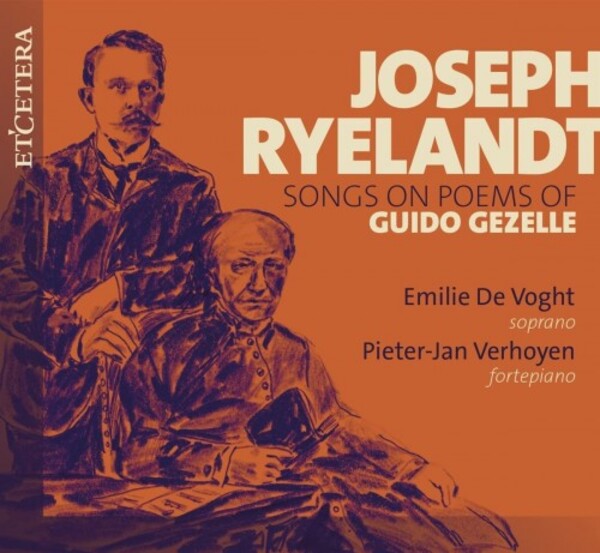
Ryelandt - Songs on Poems of Guido Gezelle
£13.25
In stock - available for despatch within 1 working day
Despatch Information
This despatch estimate is based on information from both our own stock and the UK supplier's stock.
If ordering multiple items, we will aim to send everything together so the longest despatch estimate will apply to the complete order.
If you would rather receive certain items more quickly, please place them on a separate order.
If any unexpected delays occur, we will keep you informed of progress via email and not allow other items on the order to be held up.
If you would prefer to receive everything together regardless of any delay, please let us know via email.
Pre-orders will be despatched as close as possible to the release date.
Label: Etcetera
Cat No: KTC1731
Format: CD
Number of Discs: 1
Genre: Vocal/Choral
Release Date: 16th December 2022
Contents
Works
Eerste communieliedEgo flos, op.77
Geestelijke liederen (5), op.44
Liederen (3), op.68
Vlaamse liederen (4), op.46
Artists
Emilie de Voght (soprano)Pieter-Jan Verhoyen (piano)
Works
Eerste communieliedEgo flos, op.77
Geestelijke liederen (5), op.44
Liederen (3), op.68
Vlaamse liederen (4), op.46
Artists
Emilie de Voght (soprano)Pieter-Jan Verhoyen (piano)
About
Joseph Ryelandt published Guido Gezelle's Étude littéraire in 1920 with the intention of making the Flemish priest and poet better known in the French-speaking world. Ryelandt considered Gezelle (1830-1899) to have been one of the greatest poets of his time; Gezelle had indeed been one of the composer's principal points of reference during WWI.
Joseph Ryelandt was born and lived in the city of Bruges and knew Guido Gezelle well. They never became close friends because of the difference in their ages, but there was no lack of respect for each other's work and personality. Gezelle was the elder of the two and had achieved his greatest success in the 1890s, creating his public image of an affable priest and poet whose ceaseless contemplation of creation resulted in poetic reflections on the mysteries of human existence. Guido Gezelle later came to be regarded as one of the greatest Flemish Catholic poets of his time, particularly after his death in 1899, and his texts were set to music by dozens of Flemish and other composers. Today he is considered as one of the most important Belgian poets of the 19th century.
There are no real events in Gezelle's poetry; they are mostly musings and thoughts that presuppose little action. According to Ryelandt, Gezelle had no interest in using objective accuracy to describe the world precisely and also lacked the character to dramatise the events of this material world. Gezelle's greatest strengths did not lie in description nor imitation, but rather in simplicity and lyricism. Gezelle could perceive a detail in nature better than any other, causing the world around it to disappear and that one detail to became a world in itself. This poetic stasis led him towards sincerely-felt and profound insights that left a deep impression on Ryelandt. Here too is the explanation of why the songs on this CD are not the most dynamic or lively: they are completely honest and open renderings of the inner emotional world of Bruges Catholic mysticism before the First World War.
Error on this page? Let us know here
Need more information on this product? Click here